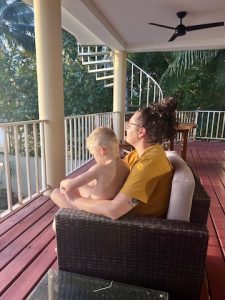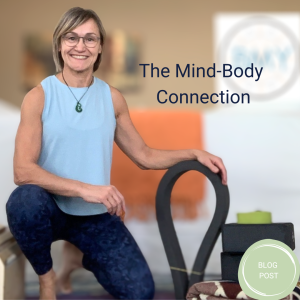— and How Can It Support Your Mental Health.
by Sandra Wiebe
In the midst of a busy life — juggling relationships, career changes, caregiving, or even just the quiet shift into a new chapter — it’s not uncommon to feel overwhelmed, anxious, or disconnected. For many midlife women, stress becomes a near-constant companion. But what if there was a gentle, evidence-based way to relate to stress differently — with awareness, compassion, and intention? Enter Mindfulness-Based Stress Reduction (MBSR).
What Is MBSR?
Originally developed in the 1970s by Dr. Jon Kabat-Zinn, MBSR teaches participants how to use mindfulness to manage stress, pain, and illness, encourages moment-to-moment awareness — noticing your thoughts, feelings, and body sensations without judgment.

It’s not about clearing your mind or achieving a state of bliss. Rather, it’s about learning to be with whatever is present, with greater clarity and calm.
Why It Matters in Midlife
The midlife season is often one of reflection and transition. It can bring hormonal shifts, changing family roles, grief, health issues, or questions about purpose and identity. These layers of stress can quietly build up, impacting your mental well-being and sense of self. MBSR offers a way to pause, breathe, and come home to yourself.
Through regular mindfulness practice, many women report:
- Feeling less reactive and more grounded
- Improved sleep and concentration
- Greater self-compassion and emotional resilience
- Relief from anxiety and low mood
- A renewed connection with their body and inner wisdom
The Science Behind It
MBSR has been widely studied, and the research is encouraging. Studies show that participants in MBSR programms often experience reduced symptoms of depression and anxiety, improved emotional regulation, and increased grey matter in brain regions linked to learning, memory, and emotional balance.
Put simply, mindfulness helps rewire the brain — creating new patterns that support peace, presence, and mental flexibility.
A Simple Example
Imagine you’re having a difficult day — perhaps you’re feeling criticized, overlooked, or stretched too thin. Instead of spiralling into harsh self-talk or numbing distractions, mindfulness invites a pause. You might notice the tightness in your chest, the swirl of thoughts, the urge to react. With practice, you learn to soften, breathe, and choose a kinder response. That’s the heart of MBSR — not avoiding stress, but transforming your relationship with it.
You deserve tools that help you not just cope with life’s challenges, but meet them with strength and softness. Mindfulness-Based Stress Reduction isn’t a quick fix — it’s a compassionate pathway back to yourself.
If you’re curious about integrating mindfulness into your healing journey, feel free to reach out — I’d be honoured to walk alongside you – book a call.



 Common Midlife Struggles Women Face
Common Midlife Struggles Women Face


 Tip: Check out the wellness tracker. It’s a simple but powerful tool designed to help you remember the promises you make to yourself. As you complete wellness activities your tree will blossom, and so will you!
Tip: Check out the wellness tracker. It’s a simple but powerful tool designed to help you remember the promises you make to yourself. As you complete wellness activities your tree will blossom, and so will you!